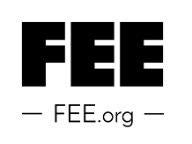Faculty News
—
Senior Research Scholar Alain Bertaud discusses Mumbai's land zoning regulations
—

Excerpt from the Foundation for Economic Education blog -- "Alain Bertaud, the world’s foremost expert on land-use regulations in developing countries, has long been pointing out how zoning regulations have ruined Mumbai. Mumbai does not have bridges that connect the mainland to docks. As Bertaud points out, such bridges built across San Francisco Bay and Pearl River Delta have turned topographical liabilities into assets. According to Bertaud, with coastal zone regulations as stringent as Mumbai, New York, Hong Kong, Singapore, San Francisco, and Rio de Janeiro would not even have been built."
Faculty News
—

Excerpt from the Foundation for Economic Education blog -- "Alain Bertaud, the world’s foremost expert on land-use regulations in developing countries, has long been pointing out how zoning regulations have ruined Mumbai. Mumbai does not have bridges that connect the mainland to docks. As Bertaud points out, such bridges built across San Francisco Bay and Pearl River Delta have turned topographical liabilities into assets. According to Bertaud, with coastal zone regulations as stringent as Mumbai, New York, Hong Kong, Singapore, San Francisco, and Rio de Janeiro would not even have been built."























